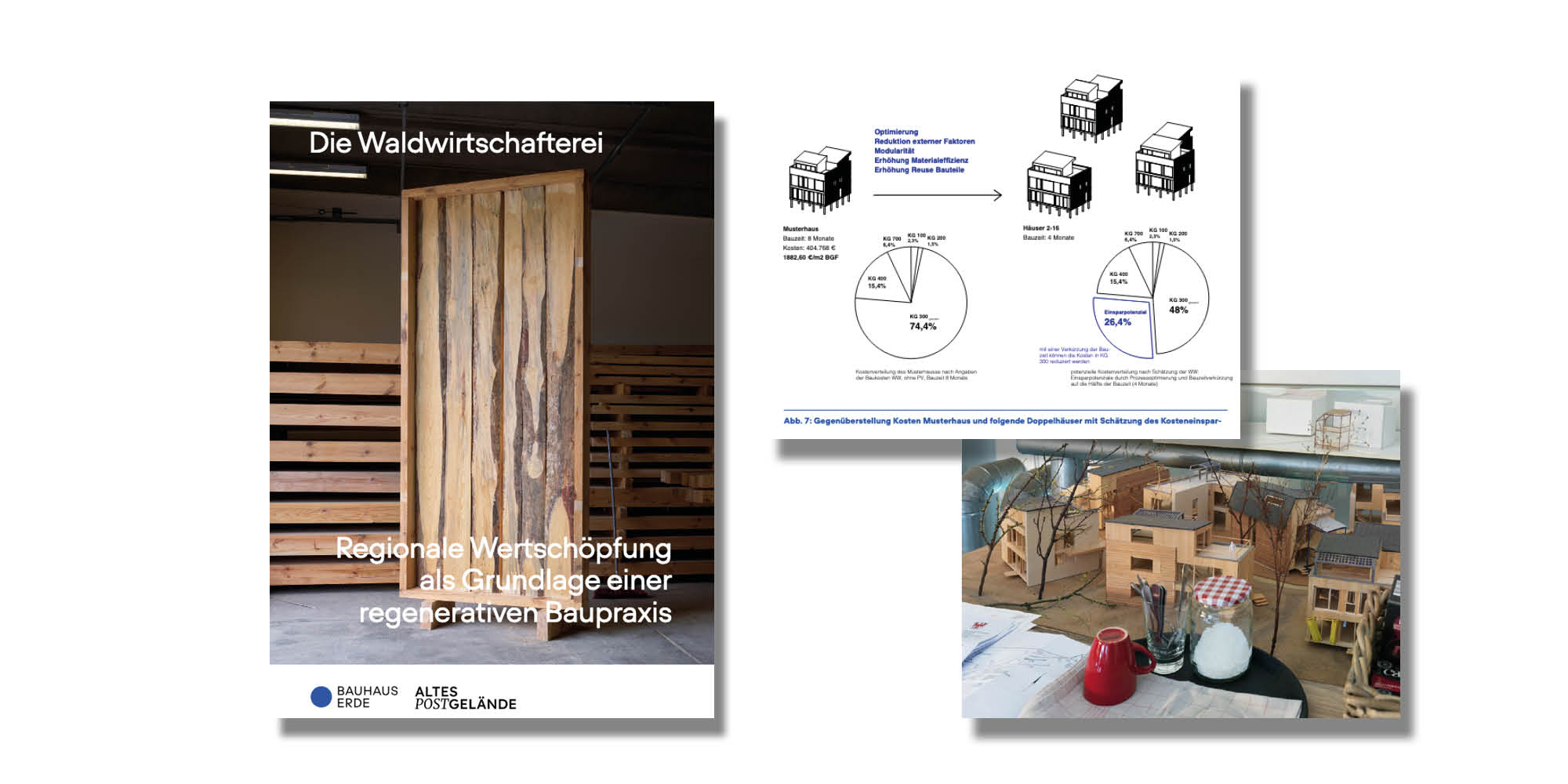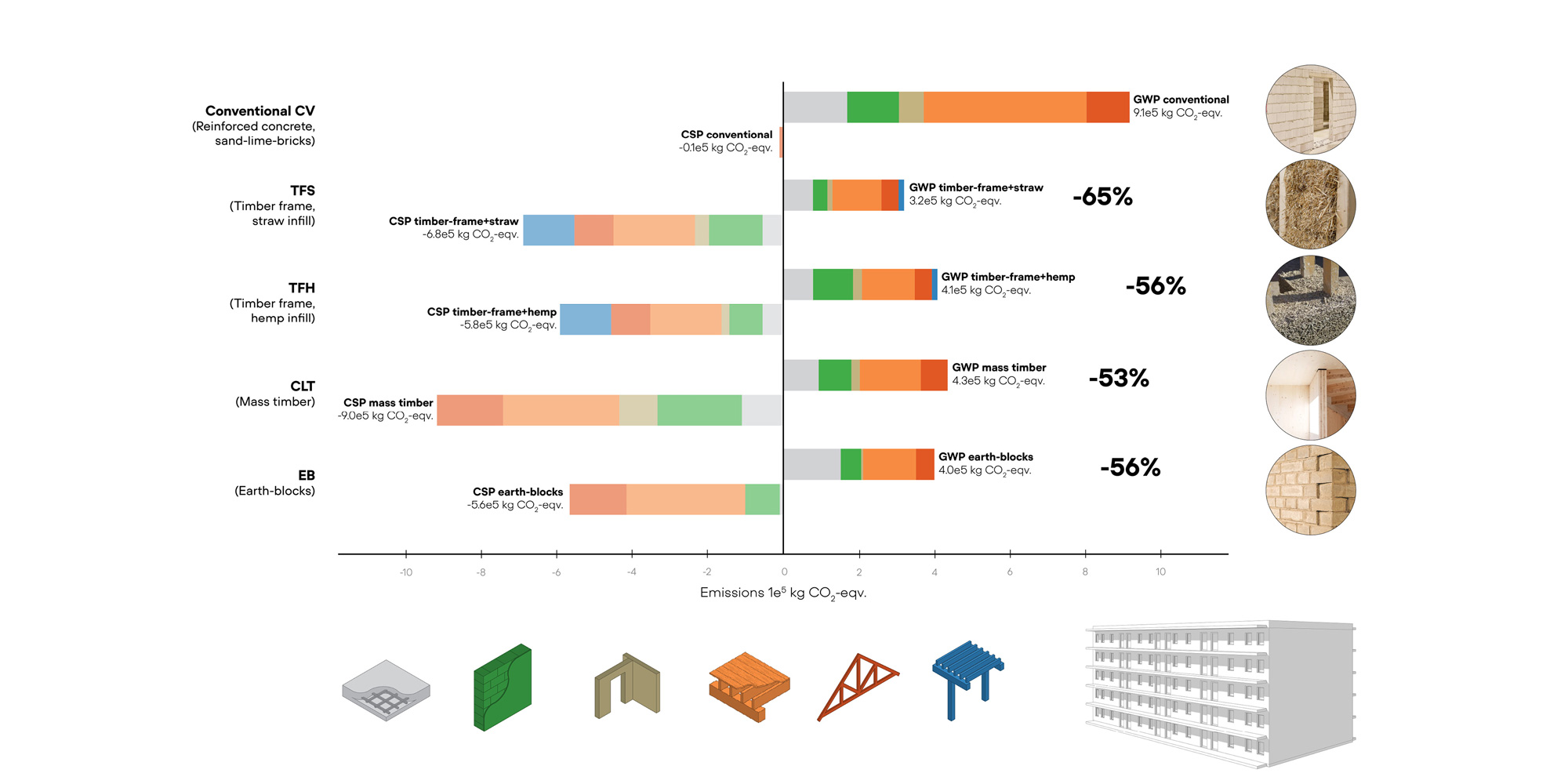All projects
Themes
Nature-based Materials
Prototyping
Circularity
Duration
2021 - Present
Location
Worldwide
The Sediments Project

Reclaiming earth from a de-construction side. Gerswalde, Germany © Bauhaus Earth (2024)
Purpose
The Sediments project explores the potential of mineral-based materials and building elements as part of regenerative building practices. Aligned with the principles of circularity, sufficiency, and regional adaptability, the project seeks to complement bio-based solutions.
Sediments are loose, unconsolidated materials—such as sand, silt, clay, and gravel—that are transported and deposited by natural forces like wind, water, or glaciers. Over time, these particles accumulate and, under pressure and heat, gradually transform into solid rock, forming the foundational layers of the Earth's landscapes. Similarly, humans have harnessed the forces of pressure and heat to solidify sediments into building materials.In recent decades, bricks (fired clay) and concrete (sand, gravel, and cement) have been the most dominant mineral-based materials, driving and accelerating global urbanisation. However, the massive utilisation of these materials, linked to great amounts of emitted greenhouse gases and the depletion of landscapes plays a significant role in the ongoing climate crisis.To address this challenge, completely abandoning mineral-based materials is neither feasible nor desirable. The Sediments Project offers a critical reflection on the predominantly linear and environmentally harmful practices surrounding mineral-based materials. Through hands-on experiments and prototyping, informed by research and evaluation, the project explores pathways for using mineral-based materials in regenerative construction.

Analysis of different soil samples. Berlin, Germany © Gäth and Kretschmann (2023)

Processing of excavation for earth block manufacturing. Berlin, Germany © Bauhaus Earth (2023)
Research
The research focus of The Sediments Project is on the development of unfired, earth-based materials that use clay as a natural and reversible binder, making them inherently circular.
A central focus of the project are compressed earth blocks (CEBs) for load-bearing construction. These blocks, when left unfired and unstabilized, offer a sustainable alternative to conventional mineral-based materials, such as fired bricks or concrete. Due to their high raw density, they are particularly effective in combination with light timber constructions, increasing the overall mass of the structure to better regulate acoustics, temperature and humidity.
Following the successful development, certification, and application of CEBs made from Berlin excavation, the project expanded to produce blocks for other regions, including Gerswalde (Brandenburg), Esbjerg (Denmark), and New Haven (USA).
To expand the potential of earth-based materials beyond CEBs, The Sediments Project is also exploring additional products, including light hemp-earth composites, earth-based mortar, and timber-earth hybrid floor plates. The knowledge generated by the project has been shared through journal articles, books, and online features [see publications], as well as through seminars and workshops with students and practitioners at institutions such as TU Berlin, TU Munich, and Yale University.
No items found.
No items found.
Team

Theresa Zschäbitz
Researcher and Project Lead

Patricia Jeglitsch
Researcher
No items found.
Bauhaus Earth Alumni
Christian Gäth
Researcher
Micha Kretschmann
Researcher
Funders & Donors
No items found.
Partners
No items found.
FAQ
How do I use the CMS reference field?
Using a refence field in Webflow is simple:
You select the field, and then options will be shown to you automatically which projects, or subpages, or other?
Link
Question
Answer
News
Upcoming Events
Thank you! Your submission has been received!
Oops! Something went wrong while submitting the form.
Curious about our past events further ahead? Check out all our past events below.
No events in the upcoming weeks
Past Events
Thu
20
Nov
11:30
Mit der Natur wachsen: Bauen mit nachwachsenden Rohstoffen. Klimafestival für die Bauwende 2025
More detailsSTATION Berlin, Luckenwalder Str. 4-6, Berlin
Talk mit Patricia Jeglitsch/Bauhaus Erde, René Görnhardt, Britta Imhoff, Hendrik Behrens
Talks

414films%20(3).jpeg)








